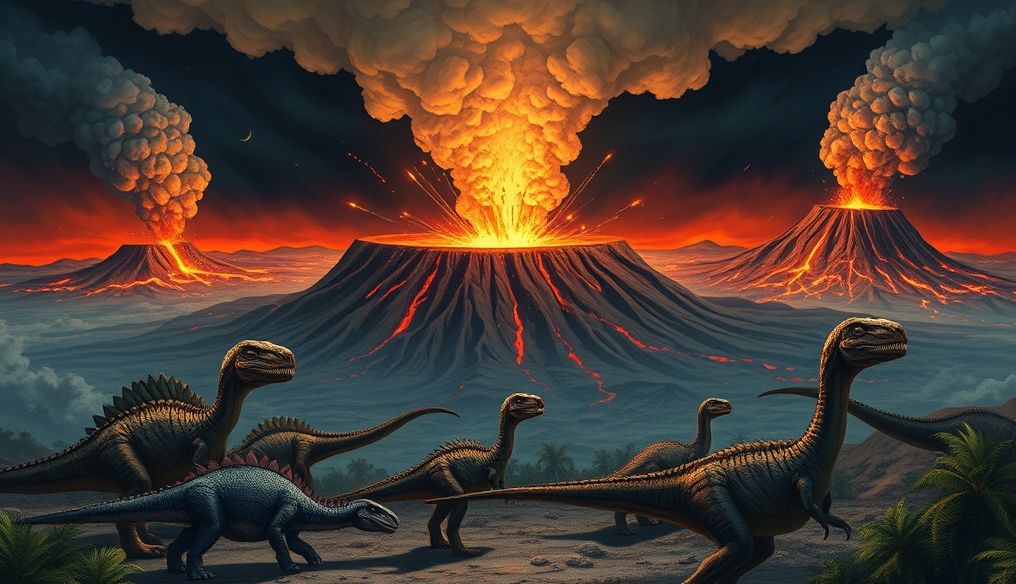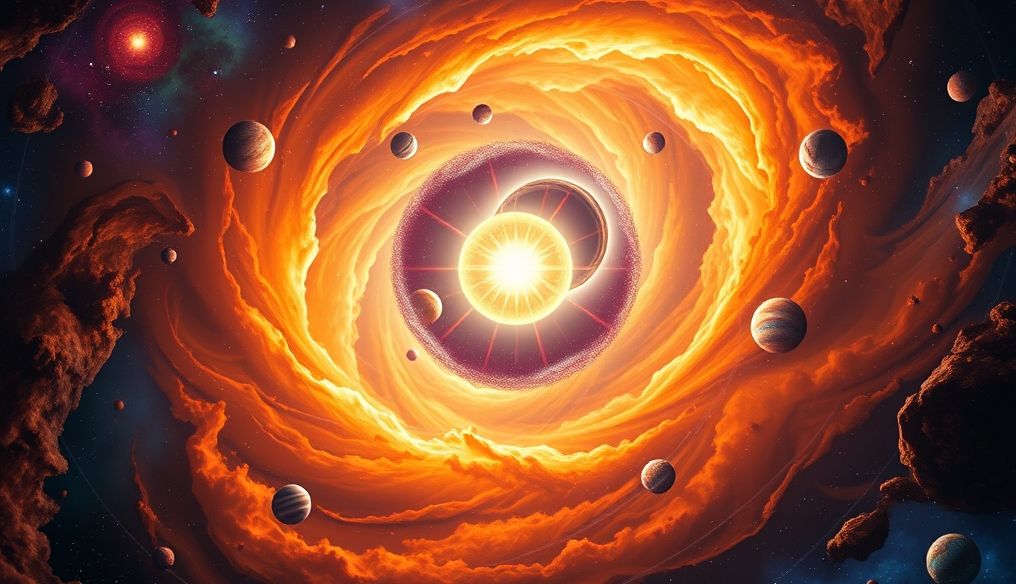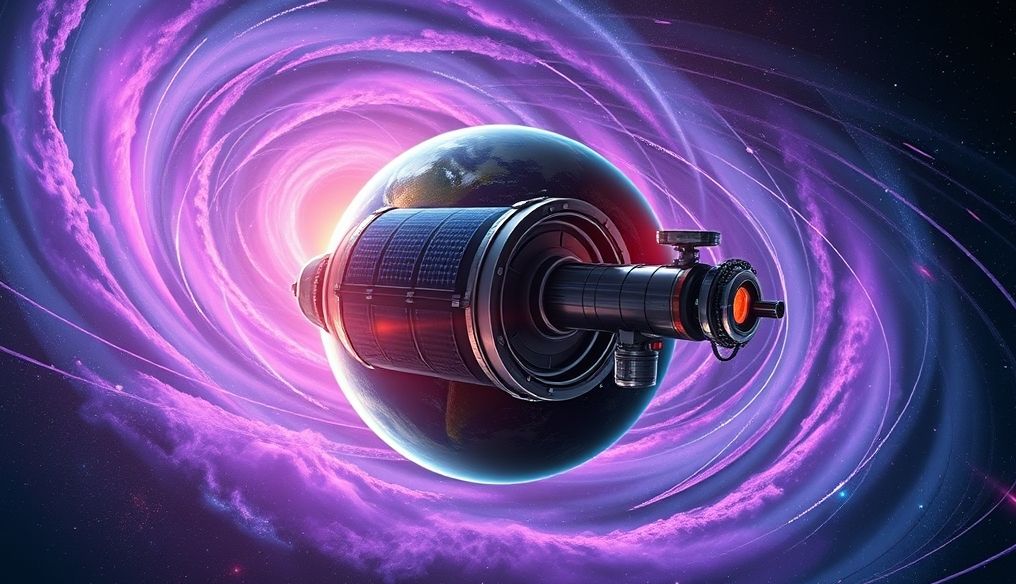Did an Asteroid Alone Cause Dinosaur Extinction? A Deeper Look at the Causes of Mass Extinction
The extinction of the dinosaurs approximately 66 million years ago has long been associated with a massive asteroid that struck Earth in the Yucatan Peninsula of Mexico. However, was this asteroid the sole cause of this catastrophic event? Recent research suggests that the story is more complex, and that other factors may have played a crucial role in the extinction of these magnificent creatures.
1. The Asteroid Impact: The Spark That Ignited the Fire
There is no doubt that the asteroid impact was a catastrophic event. It led to:
- Massive Tsunamis: Destroyed coastlines thousands of kilometers away.
- Global Wildfires: Due to the intense heat generated by the impact.
- Nuclear Winter: Thick clouds of dust and ash covered the sun, leading to a sharp drop in temperatures for years.
- Acid Rain: Poisoned the soil and water.
These factors combined led to the collapse of food chains, significantly impacting living organisms, including dinosaurs.
2. Volcanic Activity: A Continuous Catastrophic Backdrop
Before, during, and after the period of the asteroid impact, the Earth was experiencing tremendous volcanic activity, especially in the Deccan Traps region of India. This continuous volcanic activity led to:
- Release of Enormous Amounts of Greenhouse Gases: Leading to climate change and global warming.
- Poisoning of the Atmosphere: With gases such as sulfur dioxide, leading to acid rain and deteriorating air quality.
- Changes in Ocean Composition: Affecting microscopic marine organisms, which are the basis of the food chain in the oceans.
Some researchers suggest that volcanic activity may have already weakened ecosystems, making them more vulnerable to the asteroid impact.
3. Climate Change: A Crucial Long-Term Factor
Even before the asteroid and volcanic activity, the Earth was experiencing gradual climate changes. These changes may have affected the dinosaurs in various ways:
- Changes in Vegetation Cover: Led to a shortage of food sources for some types of herbivorous dinosaurs.
- Changes in Sea Levels: Led to the loss of coastal habitats.
- Changes in Temperatures: Affected dinosaur reproduction and growth.
These gradual changes may have made the dinosaurs more susceptible to extinction when a sudden catastrophe like the asteroid impact occurred.
4. Competition with Mammals: A Struggle for Survival
At that time, mammals were small and inconspicuous, but they were evolving rapidly. Some theories suggest that mammals were competing with dinosaurs for resources, such as food and habitat. After the extinction of the dinosaurs, mammals were able to expand and thrive, suggesting that they were ready to take advantage of new opportunities.
5. Skull Size: Was a Small Brain a Hindrance?
Some scientists suggest that the small brain size of dinosaurs compared to their body size may have made them less able to adapt to sudden environmental changes. Mammals, in general, have a larger brain-to-body size ratio, which may have given them an advantage in problem-solving and adapting to changing conditions.
6. Asteroid Location: Was It the Wrong Place at the Wrong Time?
Some researchers believe that the location of the asteroid impact had a significant impact on the severity of the extinction. The asteroid struck an area rich in sulfur and carbon, leading to the release of enormous amounts of these materials into the atmosphere. This may have exacerbated the effects of nuclear winter and acid rain, making conditions more difficult for living organisms.
7. Biodiversity: Were There Too Few Species?
Some studies suggest that the biodiversity of dinosaurs may have already been low before the asteroid impact. This means that species were less able to adapt to environmental changes, and that the loss of a few species could lead to the collapse of the entire ecosystem.
8. Was Extinction Inevitable?
The question remains: was the extinction of the dinosaurs inevitable regardless of the asteroid? The answer is not clear. It is clear that the asteroid was a catastrophic event that played a crucial role in the extinction, but it is likely that other factors, such as volcanic activity, climate change, and competition with mammals, also contributed to this event.
9. Lessons Learned from the Extinction of Dinosaurs
The extinction of the dinosaurs provides valuable lessons about the importance of biodiversity, the ability of natural disasters to change the course of life on Earth, and the impact of human activity on the environment. By understanding the causes of the extinction of the dinosaurs, we can take steps to protect living organisms today and prevent another mass extinction event.
10. Ongoing Research: Unsolved Mysteries
The extinction of the dinosaurs remains a subject of intensive research. Scientists continue to discover new evidence that sheds light on this catastrophic event. By studying fossils and geological analyses, we hope to gain a deeper understanding of the causes of the extinction of the dinosaurs and how they affected the evolution of life on Earth.
In conclusion, the extinction of the dinosaurs was not simply due to an asteroid. Rather, it was the result of a combination of different factors that led to radical changes in the environment. Understanding these multiple factors helps us to understand the history of life on Earth better and reminds us of the importance of preserving the biodiversity of our planet.




